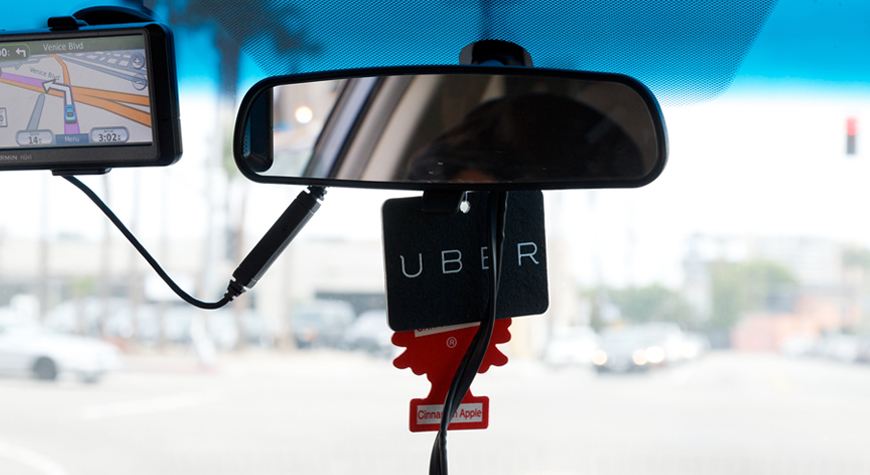It was Friday night’s dinner at a downtown Jakarta mall. Knowing how crazy traffic would be and counting on someone for ride home, I decided not to drive.
The pal canceled at the last minute, the dinner went long and by the time I started queueing for taxi, it was pouring rain. As time passed more people were waiting than taxis were arriving. Calls to taxi companies went cold. On social media Jakartans complained of disappearing taxis and buses all over town.
At 10.15 p.m. the mall lights went off, and the lady behind and I were the only women left in the vicinity. Not a comfortable situation to be in. When the next cab appeared by 10.55 p.m. it was a premium taxi the guy in front of me didn’t want to take, so I turned around and asked the lady if she wanted to share just so she wouldn’t be the only woman standing there near midnight. After some hesitation, and after I promised to foot most of the fare, she agreed.
Being stranded without public transportation is a classic urban tale. You tell yours, someone else will share a worse one. And in Jakarta, where mass transportations are harshly inadequate and sidewalks are patchy at best, on rush hours taxis are hunted down like free new gadgets. More so during rain, when they tend to magically disappear. So when Uber was launched in Jakarta recently, an app created by two San Francisco men in 2010 after getting stranded without rides, I welcome it as another option for getting around.
Isn’t Uber a taxi company, as many assume? Nope. It’s an app that connects a person needing a ride with another person willing to give the ride in exchange for a cost structured by Uber as the technology enabler, with Uber taking a percentage off the fare. It’s exactly like Airbnb for accommodations, Etsy for crafts and, lo and behold, the good old eBay. Inherently a marketplace, not a vendor.
This new model of direct exchange of goods and services is dubbed ‘sharing economy’, where individuals tired of often-unreliable intermediaries and the pertaining costs collaborate directly for consumption of a particular good or service. Airbnb enables you to find match for exact accommodation needs within the budget, for example Wi-Fi or washing machine, without having to pay for standard amenities that hotels typically provide but you don’t need on that particular visit, like a gym and flat-screen TV.
Often it’s not about getting a cheaper deal, but about getting optimal value from what you fork out. I have friends who are sworn users of Airbnb, on seller’s and buyer’s side, and I’ve been a secondhand customer to attest to the app’s higher ability to connect specific needs or wants of a traveler.
Uber enables the same thing, but for mobility. In almost 100 cities worldwide, a quarter of which are in Asia including now Jakarta, it connects drivers and passengers. It’s not hitching a ride (=nebeng) in which A gets a free lift to the same place B happens to go to, but a paid service from someone owning a vehicle to take another person wherever s/he wants to go—the basic tenets of public transportation and the freedom of mobility, that glaringly remain elusive for highly-mobile Jakarta urbanites.
So far I’ve been happy with what I paid for through Uber (fares in between regular and premium taxi). The app tells me driver’s GPS-based ETA, allows me to split fare if riding with another Uber user, and gives out the ride’s details (car type, plate number) and driver’s contacts (name, picture, cellphone number) that is a huge plus for female passengers concerned for safety (she can screen capture the page and send it to someone before getting on the cab).
Payment is settled through credit card that is set up during account creation and the detailed invoice (time, route, fare breakdown) is sent via email minutes after the ride ends, which comes handy for high urban mobility, business expense reports and especially upon traveling.
Last week in Singapore both UberX (private drivers) and UberExec (limo company drivers collaborating with Uber) saved me when running low on cash and from ridiculously long queues that often happen in downtown after 10 p.m. when Singapore taxis, as reliable as they get, tend to vanish until midnight strikes and double fare kicks in.
I’m well aware of the protests against Uber in several cities, and my take is simple: taxpayers are entitled to reliable public service, and customers are entitled to consumption choices. Local government demanding some sort of tax contribution from drivers’ income through Uber is justified, but denying citizens the freedom to choose while still failing laughably short of providing basic mass transportation is arrogantly illogical.
It gets even more ironic as main challenges for effectively using Uber come from our own poor infrastructures; bad cellular signal to log into app, highly unexpected traffic flows that often throw off ETA, and horrible city planning that hinder Googlemap-armed drivers to locate your exact location. Those are really what Jakarta administration should focus to improve on instead of getting a sensational kneejerk over a handful of enterprising cars pushing oligopolistic taxi companies, of dozens of thousands fleet I shall add, into bankruptcy. Is Jakarta authority on the people’s, or on the oligopolistic companies’ side, one wonders?
Urban mobility is also what Uber should really focus on, if they’re serious about establishing a business in Jakarta – a comfortable option for mobility in a metropolitan with big problems of transportation. I find it very curious that Uber instead has been fixating on “Let’s ride our fancy cars” notion instead. In a country with a noticeably wide income gap that kind of purported imagery, especially when chiefly relayed through social media that many have access to, will win negative sentiments faster than loyal clients. How misdirected.
Now, while you all ponder on this, let me try to get a ride.
About Lynda Ibrahim
Lynda Ibrahim is a Jakarta-based writer and consultant, with a penchant for purple, pussycats and pop culture.








Comments